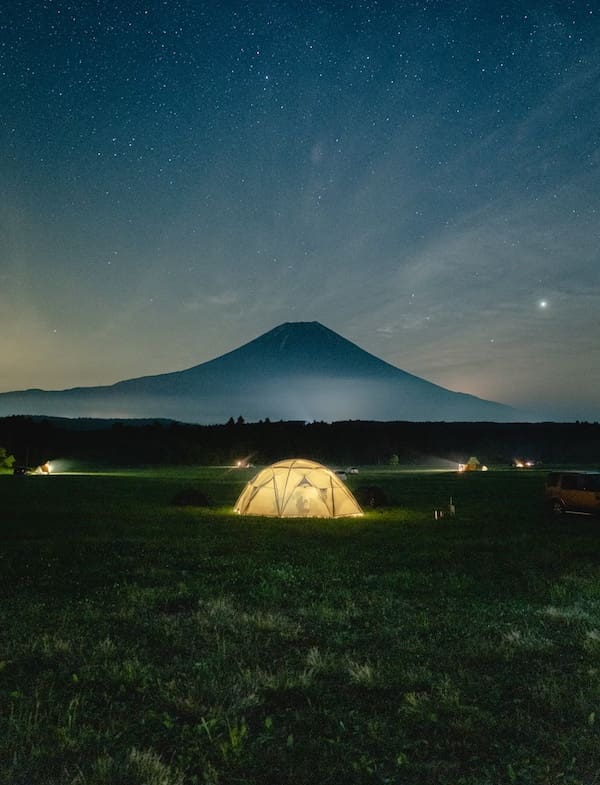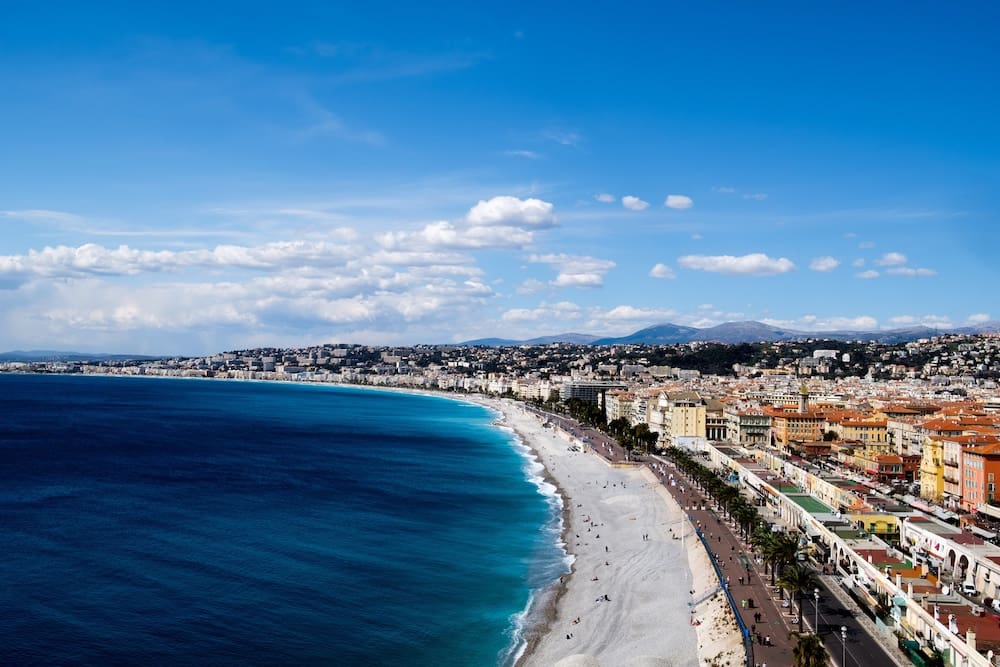Ecotourism combines tourism and eco-friendliness. It is defined as, “responsible travel to natural areas that conserves the environment, sustains the well-being of the local people, and involves interpretation and education” (TIES).
Typically, ecotourism involves traveling to destinations where the cultural heritage and the native flora and fauna are the primary attractions.
The whole point of ecotourism is to offer tourists insights into how human beings affect their environment and to encourage a deeper appreciation and understanding of the natural habitats of people across the world.
Ecotourism aims to minimize the negative impact that conventional tourism has on the environment while enhancing local people’s cultural integrity.
An integral part of ecotourism includes conservation efforts, community-building, and an interpretation of culture and local society to facilitate awareness and unity.

Background and History of Ecotourism
Ecotourism is a blend of the words “eco” and “tourism.” The word “ecotour” was first recorded in 1973 while “ecotourism” was recorded later in 1982.
Ecotour is an educational tour or visit that aims to leave as little impact as possible on the local ecology. Eco destinations are often areas of ecological interest, and the visit is often tied to conservation efforts.
Ecotourism is an important shift in perspective from traditional tourism because it aims to increase awareness about threatened natural environments, endangered species, and ecologically challenged communities.
Ecotourism involves educating all the parties involved. The staff, visitors, and locals all stand to learn something during the experience which can be extremely enriching.

History Of Ecotourism: Early Leaders
To understand what ecotourism means, how it works, and why it matters, we need to understand its history — where it came from, and why it became popular.
Sierra Club Outings
The earliest origins of ecotourism are rooted in Sierra Club’s Outing program, launched in 1901. The Sierra Club is a US-based environmental organization that is dedicated to addressing issues related to climate change, pollution, clean energy, and the preservation of natural resources and wildlife among others.
During Sierra Club Outings, the non-profit organization hosts annual expeditions to the Sierra Nevada’s backcountry. Participants are encouraged to become actively involved in forest preservation efforts while touring. Visitors are shown the natural wonders of the environment, fueling their interest and motivation to help conserve it.
By the 1970s, environmental activism became more prevalent. It later became the foundation of modern ecotourism which began to gain momentum around the 1980s.
Mexican Association for Conservation of Nature
In 1981, Ceballos-Lascuráin became the Mexican Association for Conservation of Nature’s founding president. This association was the most influential Mexican NGO in the field of conservation.
In 1984, the first Mexican ecotourism agency, ECOTOURS, was founded.
Megan Wood, Russell Mittermeier, and Thomas Lovejoy
A young wildlife biologist named Megan Epler Wood was hired by the founder of the World Wildlife Fund (WWF), Russel Train, in the early 1980s. She was one of the movement’s early adopters at a time when the idea of sustainability was still relatively new.
Other leaders include Russell Mittermeier, the President of Conservation International, and Thomas Lovejoy, known as the godfather of biodiversity.
With their efforts, the conversation about enhancing the conservation efforts of local communities was brought to life.

What Are the Principles of Ecotourism?
Ecotourism is based on the principle of uniting conservation efforts and local communities with sustainable travel that doesn’t adversely impact the environment.
It relies on merging a responsible travel industry with nature/wildlife conservation efforts that are supported by locals.
On a practical level, ecotourism is geared towards accommodations, attractions, and activities that tourists can enjoy while benefiting all the parties involved. The local flora and fauna are allowed to thrive as tourism causes as little impact as possible. Travelers, on the other hand, can enjoy new environments and cultures.
Locals also stand to gain from this shift since their conservation efforts are enhanced by the involvement of tourists.
Meanwhile, travel industry stakeholders earn a living and make profits while enjoying sustainable operations that will reap benefits for them in the long term.
Simply put, ecotourism principles are:
- To minimize the social, physical, behavioral, and psychological impact of the tourism industry on local communities
- To encourage cultural respect and awareness as well as environmental conservation efforts
- To offer positive experiences for visitors and hosts
- To provide direct financial assistance toward local conservation efforts
- To generate monetary benefits for local people and private industry stakeholders
- To provide visitors with memorable, interpretative experiences that will help raise their sensitivity towards the host destination’s political, social, and environmental climate
- To help visitors recognize the spiritual beliefs of indigenous people and their rights in the community
- To enable close partnership between visitors and local communities by empowering locals and encouraging their efforts

Advantages of Ecotourism
Here are some of ecotourism’s key advantages:
1. Promotes Environmental and Cultural Awareness
Education and awareness play a huge role in ecotourism. Improving awareness and making people more sensitive toward environmental issues is the focus of ecotourism efforts.
By applying its principles, tour operators can make people more aware of the effect they have on the places they visit. Often, conservation education programs are a part of ecotours, which include interpretative guides, naturalists, and guest lecturers who provide travelers with a deeper understanding of the place.
Travelers can enjoy immersive experiences of the local cultures. This improves their ability to understand, accept, and interact with people different from them while fostering unity.
They are also able to appreciate nature better as they are made aware of the different and unique flora and fauna of a place.
Overall, awareness and education are extremely important elements in building a sustainable industry and community — a facet where ecotourism is helpful. Economic, social, and environmental stability is, therefore, made possible by ecotourism.
2. Low Impact Facilities That Enrich Travelers’ Experiences
Ecotourism offers transformative experiences that allow travelers to develop deeper relationships with nature, wildlife, and the local people they encounter.
It also focuses on sustainability and minimizing the carbon footprint that is often a side-effect of frequent travel.
Alternative energy sources and sustainable building materials ensure that the facilities created for travelers and tourism remain low-impact, from development to implementation. This ensures that travelers can have an incredible experience without compromising the environment or local culture in exchange for comfort and enjoyment.
3. Financial Assistance for Conservation Efforts
Ecotourism generates a lot of revenue that helps fund nature and wildlife conservation efforts. In fact, it can become an alternative to urbanization, unsustainable agriculture, deforestation, and poaching in local economies.
The money generated from ecotourism goes a long way in sustaining the economy, reducing unemployment, and diverting people’s efforts towards a more environmentally friendly lifestyle.
Once the local community realizes that their natural environment and wildlife are a source of income, they too focus their efforts toward protecting and conserving them. This will attract more visitors and travelers.
Ecotourism can, therefore, help improve conservation efforts by creating a healthy cycle of conservation and consumption.
4. Financially Beneficial for Local People
Ecotourism is designed to provide financial benefits to local people. This is done through direct means such as admission fees, tours, and donations, and indirect means such as taxation on accommodation or travel.
It also helps involve local communities and increases employment opportunities, making it a lucrative stream of revenue.
In most cases, local communities are involved in tourism management. This empowers them by giving them the ability to ensure that tourism revenue can be reinvested locally. It’s also helpful in giving indigenous people the means to remain on their ancestral land, preserve their culture, and maintain their way of life.
5. Supports Human Rights
Ecotourism initiatives are meant to offer economic empowerment, democratic movements, and support human rights. They help increase awareness around environmental and socio-political issues in a given destination, making it possible for natives to garner support from visitors who come from all walks of life.
This in turn helps local businesses and supports the rights of indigenous inhabitants, giving them greater control over their land while safeguarding their interests.

Disadvantages of Ecotourism
Ecotourism, like all things, is a double-edged sword. It can have disadvantages and drawbacks in certain situations:
1. Seasonality
The activities or destinations in an ecotour can be seasonal, making it an unsteady source of income or employment for locals.
2. Carbon Emissions Are Reduced but Not Completely Eliminated
No form of tourism can have a completely zero carbon footprint. Ecotourism can lower our impact but it will still generate carbon emissions.
3. Can Increase Conventional Tourism
Ecotourism is meant to be slow and sustainable, but it can make a destination extremely popular, leading to an increase in conventional tourism. This can heighten problems faced by all kinds of tourist destinations such as the displacement of wildlife and indigenous people.
4. Can Dehumanize Local or Indigenous People
Ecotourism involves interactions between visitors and locals. However, this can make people feel like attractions and can be dehumanizing for them.
5. May Increase Burden on Locals
While ecotourism is meant to be as environmentally friendly as possible, travelers can litter or pollute their surroundings no matter how careful the guides and locals may be. This increases the burden on locals as far as their conservation efforts go.
Ecotourism Is a Step in the Right Direction
In 2019, before the global pandemic hit, there were 1.5 billion tourists worldwide. When you stop and think about how much environmental damage we cause by traveling, the collective effect is staggering.
Ecotourism may not be the end-all and be-all solution to all our environmental issues, but it is certainly a big step in the right direction. Read our sustainable travel tips that will help you make a positive impact on your travels.
Also check out our guide to the best sustainable hotels in more than 60 destinations around the world.





